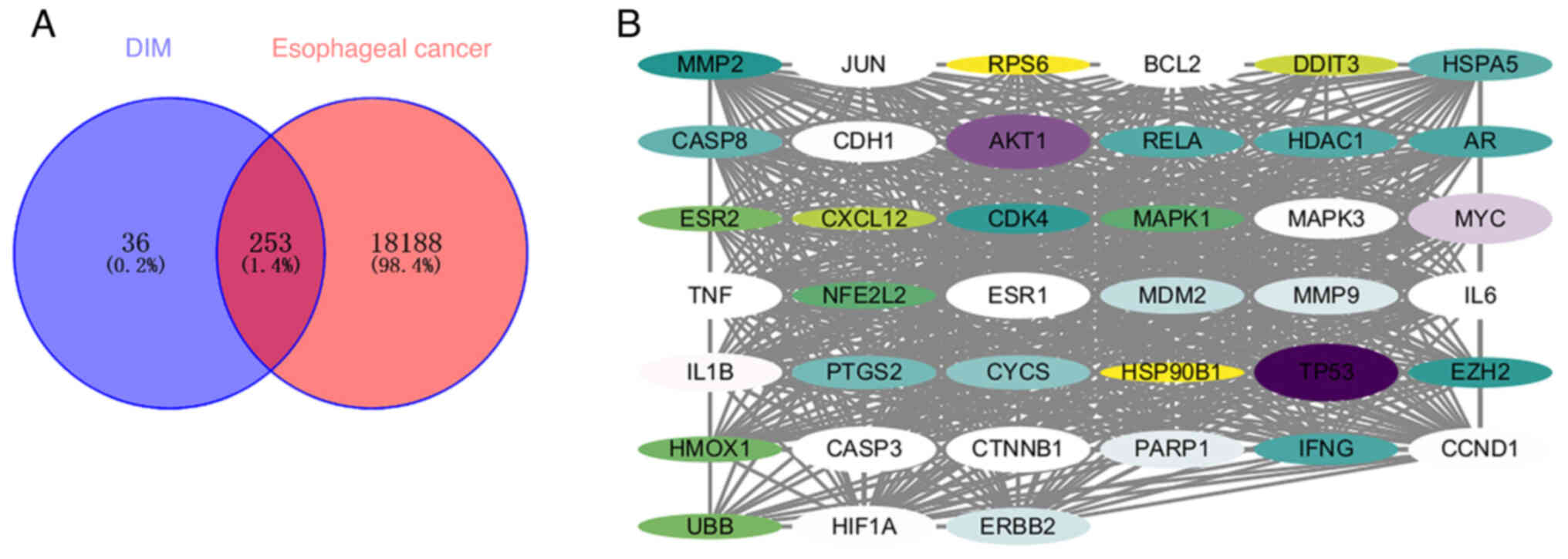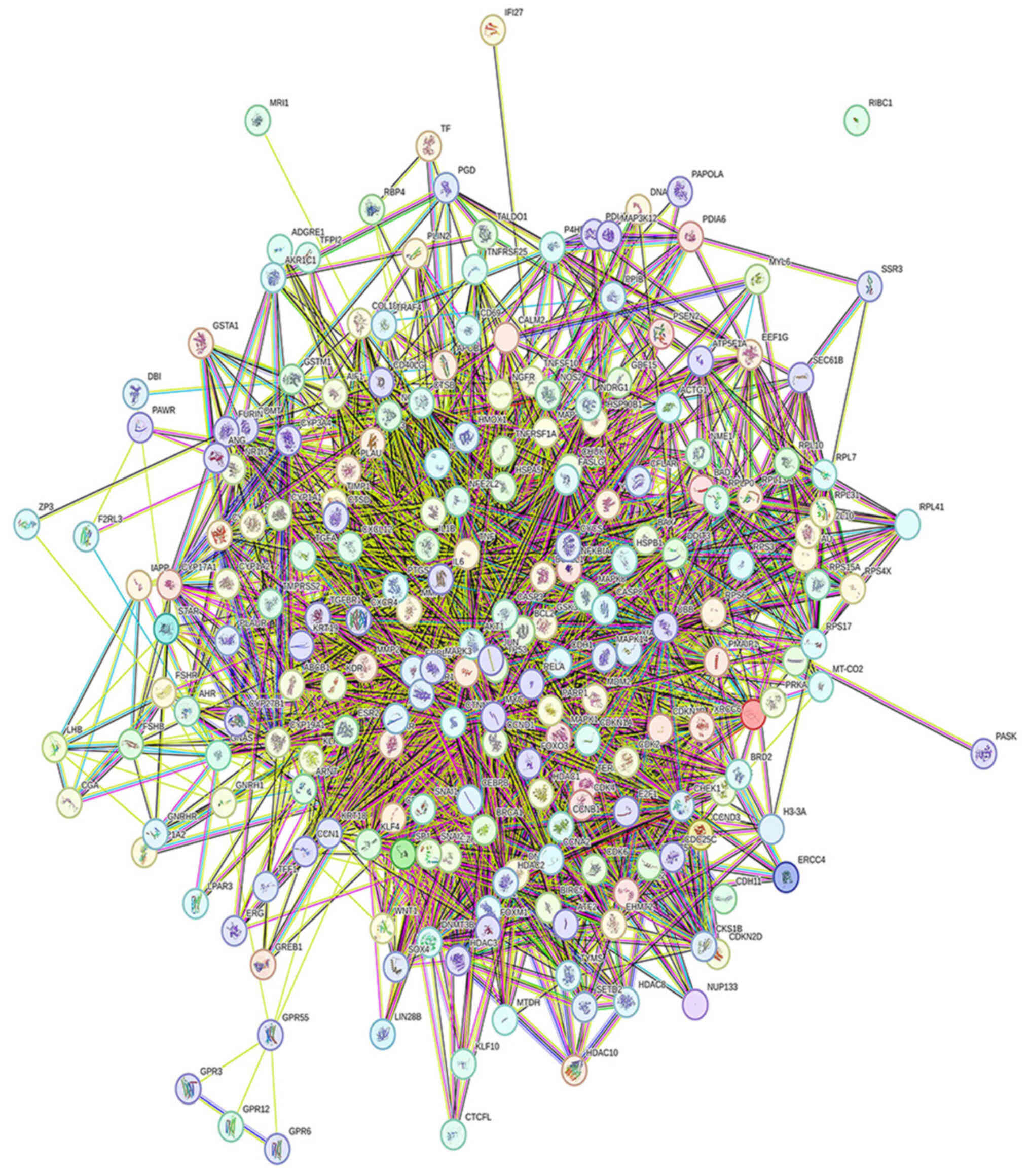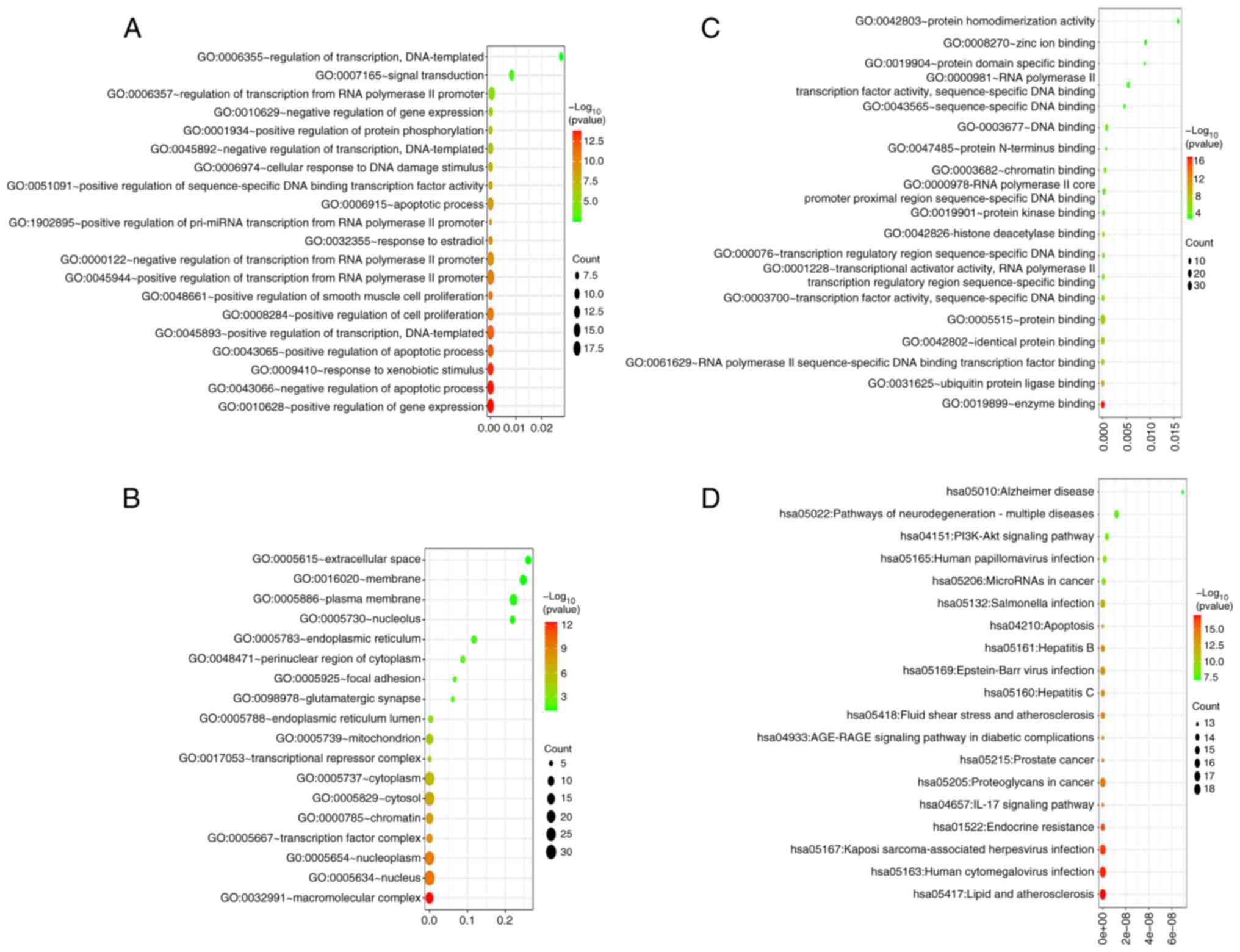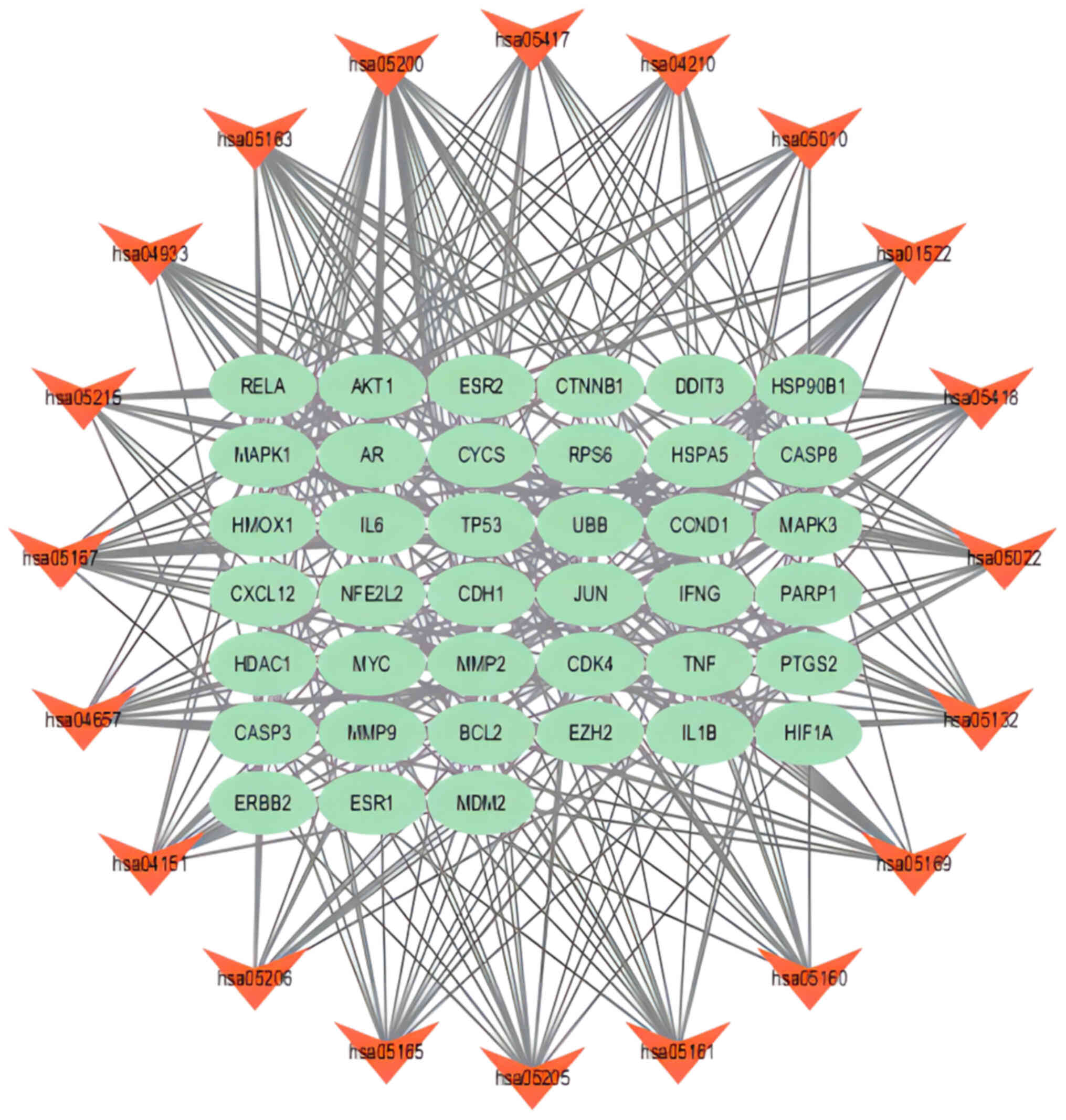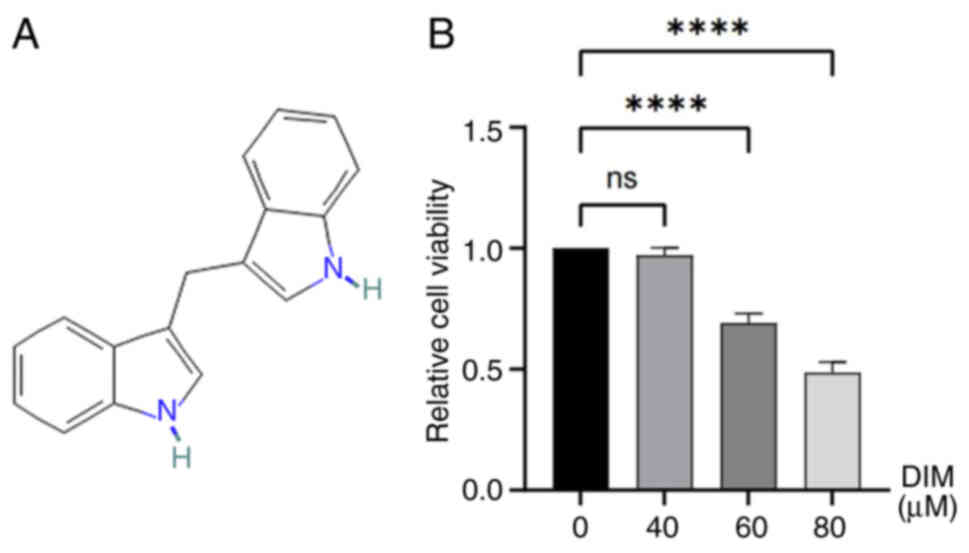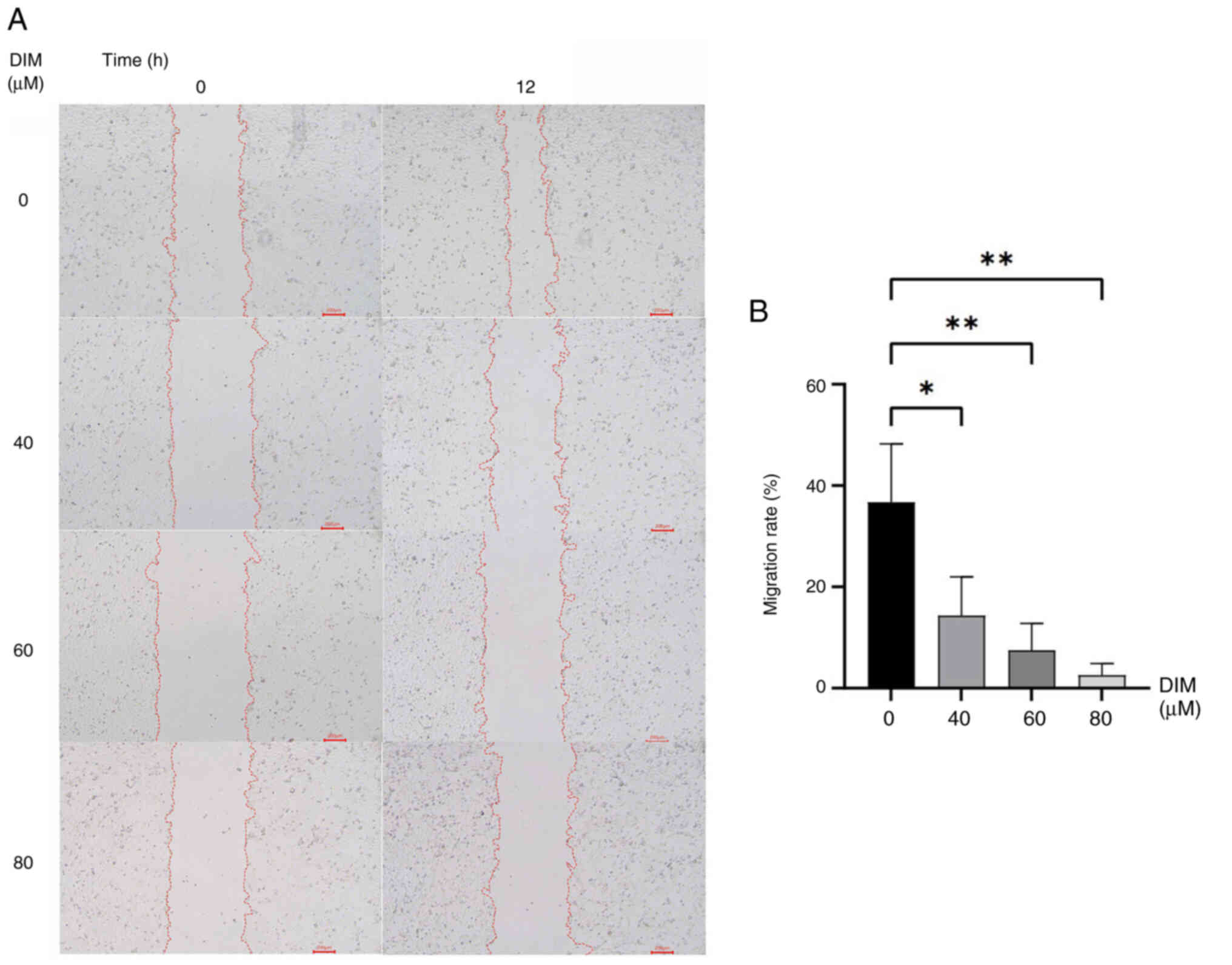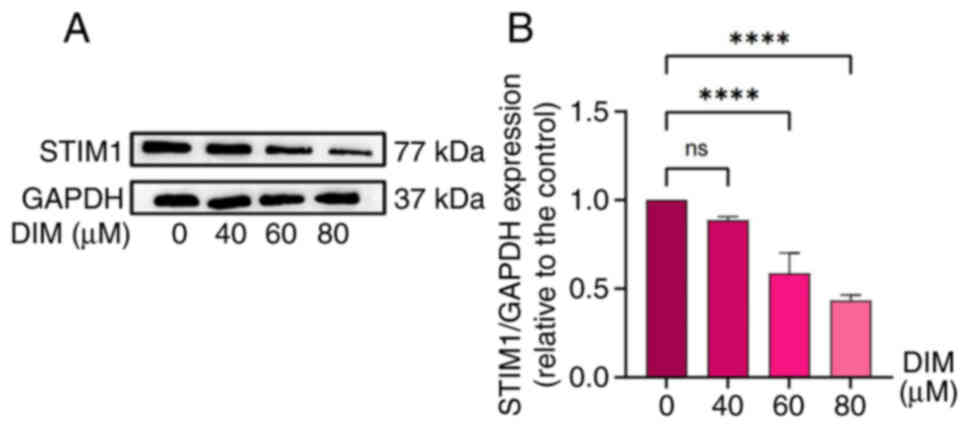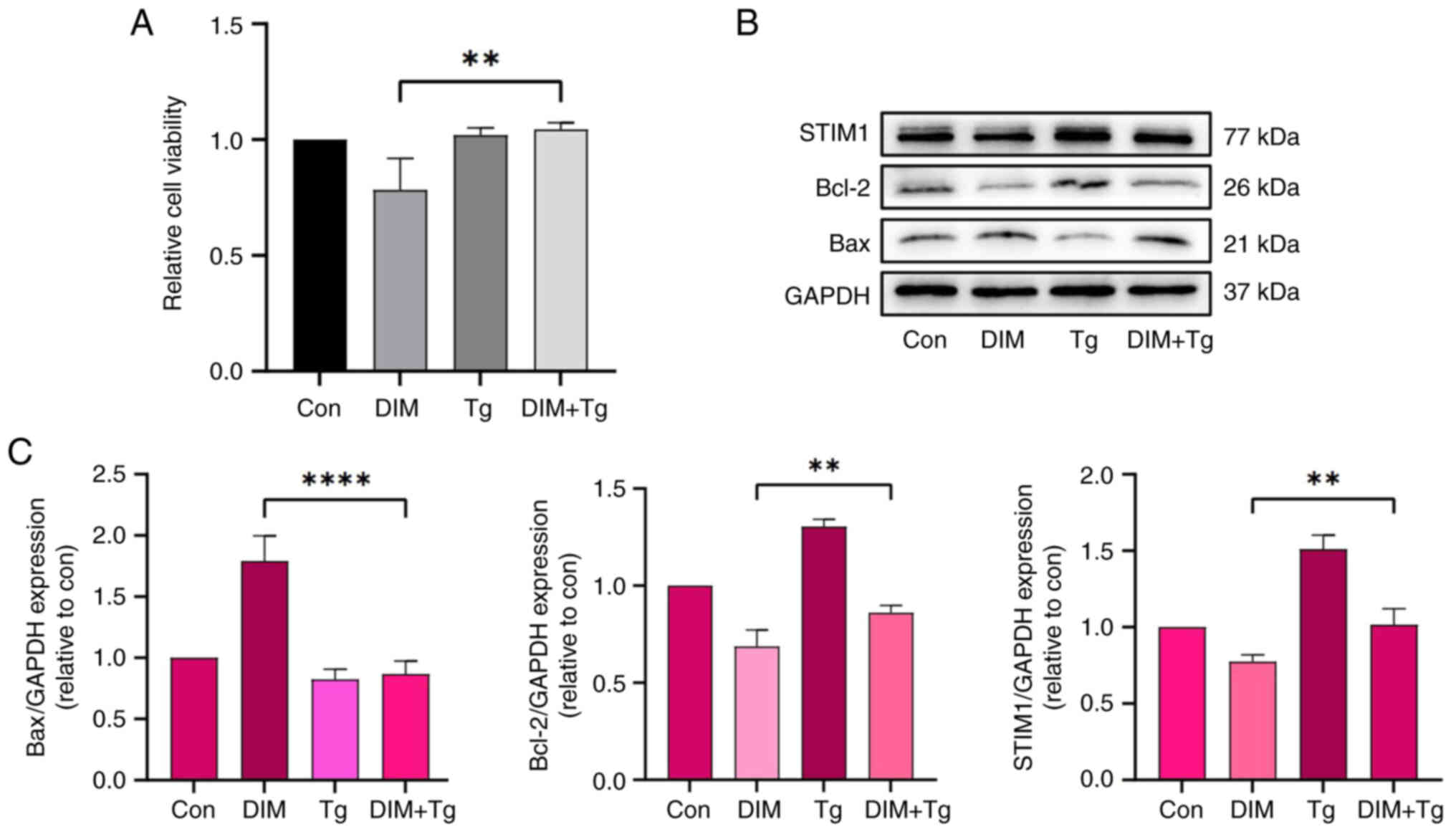|
1
|
Kamangar F, Nasrollahzadeh D, Safiri S,
Sepanlou SG, Fitzmaurice C, Ikuta KS, Bisignano C, Islami F,
Roshandel G, Lim SS, et al: The global, regional, and national
burden of oesophageal cancer and its attributable risk factors in
195 countries and territories, 1990–2017: A systematic analysis for
the global burden of disease study 2017. Lancet Gastroenterol
Hepatol. 5:582–597. 2020. View Article : Google Scholar
|
|
2
|
Chen W, Zheng R, Zhang S, Zeng H, Fan Y,
Qiao Y and Zhou Q: Esophageal cancer incidence and mortality in
China, 2010. Thorac Cancer. 5:343–348. 2014. View Article : Google Scholar : PubMed/NCBI
|
|
3
|
Jung HK, Tae CH, Lee HA, Lee H, Don Choi
K, Park JC, Kwon JG, Choi YJ, Hong SJ, Sung J, et al: Treatment
pattern and overall survival in esophageal cancer during a 13-year
period: A nationwide cohort study of 6,354 Korean patients. PLoS
One. 15:e02314562020. View Article : Google Scholar : PubMed/NCBI
|
|
4
|
Uhlenhopp DJ, Then EO, Sunkara T and
Gaduputi V: Epidemiology of esophageal cancer: Update in global
trends, etiology and risk factors. Clin J Gastroenterol.
13:1010–1021. 2020. View Article : Google Scholar : PubMed/NCBI
|
|
5
|
Shah MA, Kennedy EB, Catenacci DV,
Deighton DC, Goodman KA, Malhotra NK, Willett C, Stiles B, Sharma
P, Tang L, et al: Treatment of locally advanced esophageal
carcinoma: ASCO guideline. J Clin Oncol. 38:2677–2694. 2020.
View Article : Google Scholar : PubMed/NCBI
|
|
6
|
Herzberg J, Strate T, Guraya SY and
Honarpisheh H: Risk factors for anastomotic leakage after surgical
resections for esophageal cancer. Langenbecks Arch Surg.
406:1859–1866. 2021. View Article : Google Scholar : PubMed/NCBI
|
|
7
|
Schröder W, Raptis DA, Schmidt HM,
Gisbertz SS, Moons J, Asti E, Luyer MDP, Hölscher AH, Schneider PM,
Berge Henegouwen MI, et al: Anastomotic techniques and associated
morbidity in total minimally invasive transthoracic esophagectomy:
Results from the EsoBenchmark database. Ann Surg. 270:820–826.
2019. View Article : Google Scholar : PubMed/NCBI
|
|
8
|
Collins SR and Meyer T: Evolutionary
origins of STIM1 and STIM2 within ancient Ca2+ signaling systems.
Trends Cell Biol. 21:202–211. 2011. View Article : Google Scholar : PubMed/NCBI
|
|
9
|
Stathopulos PB, Li GY, Plevin MJ, Ames JB
and Ikura M: Stored Ca2+ depletion-induced oligomerization of
stromal interaction molecule 1 (STIM1) via the EF-SAM region: An
initiation mechanism for capacitive Ca2+ entry. J Biol Chem.
281:35855–35862. 2006. View Article : Google Scholar : PubMed/NCBI
|
|
10
|
Thompson JL and Shuttleworth TJ: Molecular
basis of activation of the arachidonate-regulated Ca2+ (ARC)
channel, a store-independent Orai channel, by plasma membrane
STIM1. J Physiol. 591:3507–3523. 2013. View Article : Google Scholar : PubMed/NCBI
|
|
11
|
Zheng L, Stathopulos PB, Schindl R, Li GY,
Romanin C and Ikura M: Auto-inhibitory role of the EF-SAM domain of
STIM proteins in store-operated calcium entry. Proc Natl Acad Sci
USA. 108:1337–1342. 2011. View Article : Google Scholar : PubMed/NCBI
|
|
12
|
Lodola F, Laforenza U, Bonetti E, Lim D,
Dragoni S, Bottino C, Ong HL, Guerra G, Ganini C, Massa M, et al:
Store-operated Ca2+ entry is remodelled and controls in vitro
angiogenesis in endothelial progenitor cells isolated from tumoral
patients. PLoS One. 7:e425412012. View Article : Google Scholar : PubMed/NCBI
|
|
13
|
Abdullaev IF, Bisaillon JM, Potier M,
Gonzalez JC, Motiani RK and Trebak M: Stim1 and Orai1 mediate CRAC
currents and store-operated calcium entry important for endothelial
cell proliferation. Circ Res. 103:1289–1299. 2008. View Article : Google Scholar : PubMed/NCBI
|
|
14
|
Tang J, Ye SF, Wang MQ, Li J, Meng X and
Liu F: Stromal interaction molecule 1 promotes tumor growth in
esophageal squamous cell carcinoma. Genomics. 112:2146–2153. 2020.
View Article : Google Scholar : PubMed/NCBI
|
|
15
|
Kim HW, Kim J, Kim J, Lee S, Choi BR, Han
JS, Lee KW and Lee HJ: 3,3′-Diindolylmethane inhibits
lipopolysaccharide-induced microglial hyperactivation and
attenuates brain inflammation. Toxicol Sci. 137:158–167. 2014.
View Article : Google Scholar : PubMed/NCBI
|
|
16
|
Lee GA, Hwang KA and Choi KC: Inhibitory
effects of 3,3′-diindolylmethane on epithelial-mesenchymal
transition induced by endocrine disrupting chemicals in cellular
and xenograft mouse models of breast cancer. Food Chem Toxicol.
109:284–295. 2017. View Article : Google Scholar : PubMed/NCBI
|
|
17
|
Li F, Xu Y, Chen C, Chen SM, Xiao BK and
Tao ZZ: Pro-apoptotic and anti-proliferative effects of
3,3′-diindolylmethane in nasopharyngeal carcinoma cells via
downregulation of telomerase activity. Mol Med Rep. 12:3815–3820.
2015. View Article : Google Scholar : PubMed/NCBI
|
|
18
|
Ye Y, Li X, Wang Z, Ye F, Xu W, Lu R, Shen
H and Miao S: 3,3′-Diindolylmethane induces gastric cancer cells
death via STIM1 mediated store-operated calcium entry. Int J Biol
Sci. 17:1217–1233. 2021. View Article : Google Scholar : PubMed/NCBI
|
|
19
|
Wang G: Radiosensitizing effect of
3,3′-diindolylmethane on human esophageal cancer Eca109 cell line
and its mechanism (unpublished PhD thesis). Bengbu Medical College.
2014.
|
|
20
|
Huang Z: The apparent molecular mechanism
of artesunate regulating endoplasmic reticulum stress-PI3K-AKT
inhibiting colorectal cancer (unpublished PhD thesis). Guangzhou
University of Traditional Chinese Medicine. 2018.
|
|
21
|
Lu Z, Wang J, Shu Y, Liu L, Kong L, Yang
L, Wang B, Sun G, Ji Y, Cao G, et al: Sintilimab versus placebo in
combination with chemotherapy as first line treatment for locally
advanced or metastatic oesophageal squamous cell carcinoma
(ORIENT-15): Multicentre, randomised, double blind, phase 3 trial.
BMJ. 377:e0687142022. View Article : Google Scholar : PubMed/NCBI
|
|
22
|
Ye F, Song J, Wang Y, Xu X and Zhang K:
Proliferation potential-related protein promotes the esophageal
cancer cell proliferation, migration and suppresses apoptosis by
mediating the expression of p53 and interleukin-17. Pathobiology.
85:322–331. 2018. View Article : Google Scholar : PubMed/NCBI
|
|
23
|
Fattahi S, Amjadi-Moheb F, Tabaripour R,
Ashrafi GH and Akhavan-Niaki H: PI3K/AKT/mTOR signaling in gastric
cancer: Epigenetics and beyond. Life Sci. 262:1185132020.
View Article : Google Scholar : PubMed/NCBI
|
|
24
|
Li B, Li J, Xu WW, Guan XY, Qin YR, Zhang
LY, Law S, Tsao SW and Cheung ALM: Suppression of esophageal tumor
growth and chemoresistance by directly targeting the PI3K/AKT
pathway. Oncotarget. 5:11576–11587. 2014. View Article : Google Scholar : PubMed/NCBI
|
|
25
|
Luo Q, Du R, Liu W, Huang G, Dong Z and Li
X: PI3K/Akt/mTOR signaling pathway: Role in esophageal squamous
cell carcinoma, regulatory mechanisms and opportunities for
targeted therapy. Front Oncol. 12:8523832022. View Article : Google Scholar : PubMed/NCBI
|
|
26
|
Hu P, Han Z, Couvillon AD and Exton JH:
Critical role of endogenous Akt/IAPs and MEK1/ERK pathways in
counteracting endoplasmic reticulum stress-induced cell death. J
Biol Chem. 279:49420–49429. 2004. View Article : Google Scholar : PubMed/NCBI
|
|
27
|
Benson JC and Trebak M: Too much of a good
thing: The case of SOCE in cellular apoptosis. Cell Calcium.
111:1027162023. View Article : Google Scholar : PubMed/NCBI
|
|
28
|
Barabási AL, Gulbahce N and Loscalzo J:
Network medicine: A network-based approach to human disease. Nat
Rev Genet. 12:56–68. 2011. View
Article : Google Scholar : PubMed/NCBI
|
|
29
|
Paone S, Baxter AA, Hulett MD and Poon
IKH: Endothelial cell apoptosis and the role of endothelial
cell-derived extracellular vesicles in the progression of
atherosclerosis. Cell Mol Life Sci. 76:1093–1106. 2019. View Article : Google Scholar : PubMed/NCBI
|
|
30
|
Zhao Y, Fu Y and Wang X: The effects of
Xuebijing injection on apoptosis and the expression of regulatory
factors including Bcl-2,Bax and Caspase-3 in the renal cells of
rats with acute paraquat poisoning. Hebei Med J. 40:2889–2894.
2018.
|
|
31
|
Leech CA, Kopp RF, Nelson HA, Nandi J and
Roe MW: Stromal interaction molecule 1 (STIM1) regulates
ATP-sensitive potassium (KATP) and store-operated
Ca2+ channels in MIN6 β-Cells. J Biol Chem.
292:2266–2277. 2017. View Article : Google Scholar : PubMed/NCBI
|
|
32
|
Jardin I, Lopez JJ, Salido GM and Rosado
JA: Store-operated Ca2+ entry in breast cancer cells:
Remodeling and functional role. Int J Mol Sci. 19:40532018.
View Article : Google Scholar : PubMed/NCBI
|
|
33
|
Asghar MY, Lassila T, Paatero I, Nguyen
VD, Kronqvist P, Zhang J, Slita A, Löf C, Zhou Y, Rosenholm J and
Törnquist K: Stromal interaction molecule 1 (STIM1) knock down
attenuates invasion and proliferation and enhances the expression
of thyroid-specific proteins in human follicular thyroid cancer
cells. Cell Mol Life Sci. 78:5827–5846. 2021. View Article : Google Scholar : PubMed/NCBI
|
|
34
|
Sposito S, Secondo A, Romanelli AM,
Montefusco A, Nanayakkara M, Auricchio S, Barone MV, Caputo I and
Paolella G: Peculiar Ca2+ homeostasis, ER stress,
autophagy, and TG2 modulation in celiac disease patient-derived
cells. Int J Mol Sci. 24:14952023. View Article : Google Scholar : PubMed/NCBI
|
|
35
|
Evinova A, Hatokova Z, Tatarkova Z,
Brodnanova M, Dibdiakova K and Racay P: Endoplasmic reticulum
stress induces mitochondrial dysfunction but not mitochondrial
unfolded protein response in SH-SY5Y cells. Mol Cell Biochem.
477:965–975. 2022. View Article : Google Scholar : PubMed/NCBI
|
|
36
|
Aksu EH, Akman O, Ömür AD, Karakuş E, Can
I, Kandemir FM, Dorman E and Uçar Ö: 3,3 Diindolylmethane leads to
apoptosis, decreases sperm quality, affects blood estradiol 17 β
and testosterone, oestrogen (α and β) and androgen receptor levels
in the reproductive system in male rats. Andrologia. 48:1155–1165.
2016. View Article : Google Scholar : PubMed/NCBI
|















